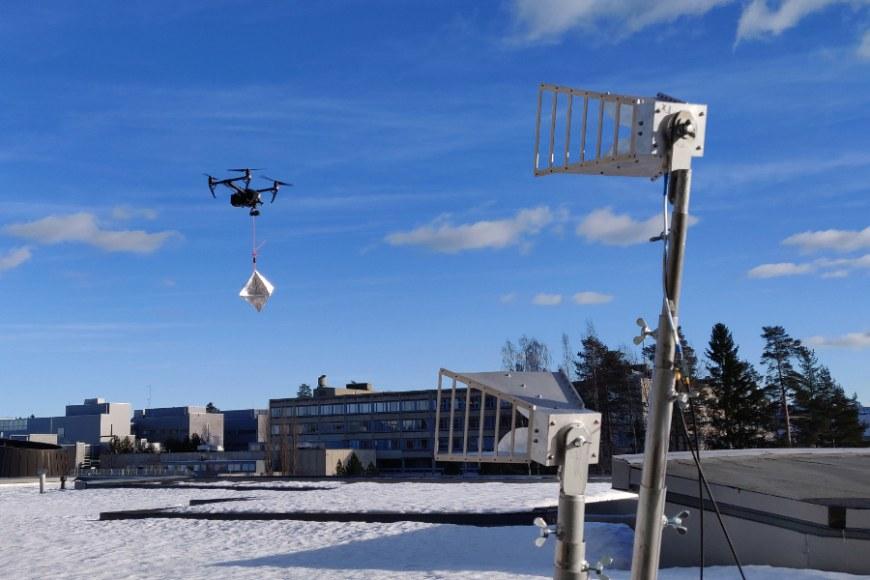Researchers at Tampere University win the EDA Defence Innovation Award for harnessing technological superpowers to defend against drones

The main methods for countering malicious drones are based on blocking the radio-frequency (RF) signals transmitted between drones and their controllers. The countermeasures usually include the detection of drone signals and interfering with their reception.
“Ideally, both tasks would be accomplished simultaneously on the same frequency. However, this is impossible with conventional RF technology as the signals that a device transmits to intentionally interfere with radio transmissions also disable the device itself. To overcome this limitation, we deployed new full-duplex radio technology to cancel out self-interference,” says Taneli Riihonen, assistant professor (tenure track) in the Electronic Engineering Unit of the Faculty of Information Technology and Communication Sciences at Tampere University.
“The innovation we submitted to the 2020 Defence Innovation Prize contest employs full-duplex radio technology to effectively defend against drone swarms,” Riihonen describes.
The innovation was created in connection with other research projects exploring the same topic that are carried out by the research group led by Taneli Riihonen. These projects were funded by the Ulla Tuominen Foundation, the Academy of Finland, the Scientific Advisory Board for Defence (MATINE) and the Support Foundation for National Defence. The research is also closely connected to international collaboration within the NATO Science and Technology Organization (STO).
The award-winning submission titled Full-Duplex Radio Technology for Enhanced Defence Capabilities Against Drone Swarms was created in cooperation with Estonia-based Rantelon, a company specialising in radio-frequency electronics that is keen to commercialise the innovation.
“Full-duplex offers radio technological superpowers for countering drones,” says engineer Karel Pärlin, who leads the development of the innovation at Rantelon.
The company is looking to integrate its separate detection and jamming devices into a single product that would outperform all existing defence equipment. The contest submission includes a roadmap for commercialising the innovation in the European defence industry.
Inquiries:
D.Sc. (Tech.) Taneli Riihonen, Tampere University
tel. +358 50 447 8349
taneli.riihonen [at] tuni.fi (taneli[dot]riihonen[at]tuni[dot]fi)





